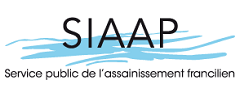Article ChemWatch: “DG Sanco to assume responsibility for EDC criteria”
No comment from industry as NGOs worry about implications
19.09.2014 |
Chemical Watch 18 September 2014 / Europe
Written by Carmen Paun, Leigh Stringer and Vanessa Zainzinger
The European Commission's directorate general for health (DG Sanco) will lead development of criteria to identify endocrine disrupting chemicals (EDCs), according to Bjørn Hansen, head of the chemicals unit at DG Environment, which has been in charge of the work until now. The switch is part of the changes planned for the new Commission, which is scheduled to start its mandate on 1 November (CW 10 September 2014).
The EDC criteria feature in the EU’s biocidal products (BPR) and pesticides Regulations (PPPR), and with DG Sanco in charge of the two policy areas starting next year, it will have “a higher stake” in proposing the new criteria, says Mr Hansen. His unit has been working with DG Sanco over the past few months on the issue (CW 16 June 2014), and he expects the two DGs will launch a public consultation on the criteria, before the end of the year.
DG Environment will still be in charge of the European Commission’s overall strategy on EDCs, as well as overseeing rules for test methods needed to detect chemicals with endocrine-disrupting properties, according to Mr Hansen.
Chemical Watch understands the delays (CW 28 May 2014) and controversy over the EDC criteria, prompted the Secretariat General of the EU Commission to advise the incoming president to move biocides policy from DG Environment to DG Health. The Secretariat General has not responded to a Chemical Watch request for comment on the issue.
“All the inter-services movements announced reflect President-elect Juncker's determination to make the different policies and DGs more compatible with the new dynamic and collaborative team work he expects from the whole Commission and to break down silos,” a spokesperson for Mr Juncker says. The changes will not necessarily see the people responsible for EDCs in DG Environment moving to DG Sanco.
The International Association for Soaps, Detergents and Maintenance Products (Aise) commented that its initial reaction to the move of biocides from DG Environment to Sanco is that it will not have “any positive or negative impact for industry. We look forward to see whether this means that the health aspect of biocides is going to take a more prominent role, because up until now the issue was only looked at from an environmental point of view,” says external affairs manager, Blanche Lermite. Several other industry associations contacted by Chemical Watch, including the European Chemical Industry Council (Cefic), declined to comment on the changes.
Meanwhile, a number of NGOs voiced concerns about DG Sanco taking over biocides and leading development of the EDC criteria. Gwynne Lyons of ChemTrust said: “Moving biocides from DG Environment to Health makes a mockery of the good work done in DG Environment, which had solicited democratic input from member states, all stakeholders and scientists to come up with draft criteria for EDCs back in June 2013. This restructuring and reassignment of the file is short-term politics to appease industry and it bodes ill for the environment and human health.”
She notes that DG Environment had been pursuing a hazard-based approach, but it seems that “powerful forces” have resulted in a more risk-based approach emerging, she says, pointing the finger at industry and the trade negotiations currently underway with the US. Ms Lyons also points out there is a legal issue, as the criteria are written in the BPR and PPPR. The NGO is keen to see the interim criteria implemented – these would see category 2 reprotoxins and carcinogens, and substances toxic to endocrine glands, classified as EDCs. This would catch a lot of EDCs so it is important they are imposed, she says. DG Sanco declined to comment on the changes.
Hans Mullerman of the NGO PAN Europe says that DG Sanco is not a good home for biocides, based on its work on pesticides. He claims DG Sanco has shown “zero commitment” to the sustainable use of pesticides Directive. The BPR requires the Commission to present a report by 18 July 2015 on the sustainable use of biocides and if there is a need to introduce additional measures, in particular, for professionals, to reduce risks posed to health and the environment through use of biocides.
The Health and Environmental Alliance (HEAL) says: “It's crucial that the momentum of the endocrine-disruptor policy process is not slowed down or the content weakened. If cutting edge EDC science is to be properly incorporated into the outcome, DG Environment’s expert work, in clarifying that a potency cut off has no place in scientifically robust EDC criteria, should remain a central component.”
Women in Europe for a Common Future (WECF) has similar fears. It is concerned that the change “would mean moving to a socio-economic approach rather than health and environment-based approach, especially given the forthcoming impact assessment which is foreseen for the next months. We fear that this means delays and postponing of decisions, while losing some key elements that have been agreed before, when DG Environment was in charge of developing EDC criteria.”
Henrik Søren Larsen, head of the Danish EPA’s chemicals division, says: “We have a special interest in the development of criteria for EDCs, so this is an important development of EU legislation, and clearly we will be following intensely how DG Sanco will deal with that topic.”
Emma Lindberg, political advisor to Sweden's environment ministry, has confirmed that Sweden sued the Commission in July for its delay in publishing the EDC criteria. The Commission has two months to respond. “We are expecting an answer within a couple of weeks,” she says. Once the case has been published in the EU Official Journal, member states that wish to intervene must tell the Court within a specific timeframe.
Related News
Congratulations Sascha!
Named thirty-third most influential sustainability fighter in the Netherlands
08.10.2018
In the media: WECF at the COP21
WECF had her voice heard in meeting rooms and to the public via interviews in Le Monde, Libération, Elle, Klimaretter and Bavarian TV news
10.12.2015
"Global Warming Affects Women More than Men"
Anne Barre, president of WECF France, was interviewed by Radio France Internationale about gender, climate change and the upcoming climate summit in Paris
06.11.2015
Why gender equality will make or break the Sustainable Development Goals
Blog by WECF Director Sascha Gabizon for the World Economic Forum website
21.09.2015
"Implementation of gender sensitive NAMAs in Georgia"
WECF's Sabine Bock interviewed for Climate Change TV at COP20 in Lima, Peru
15.12.2014 | WICF





































